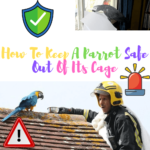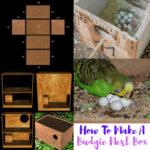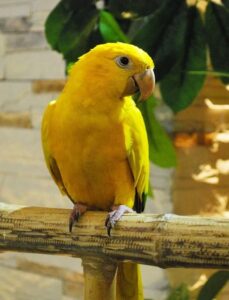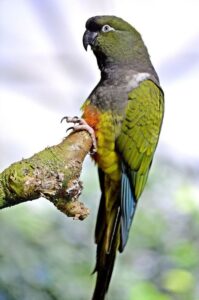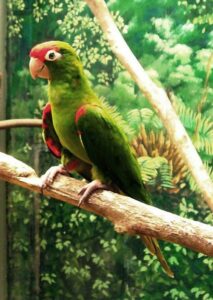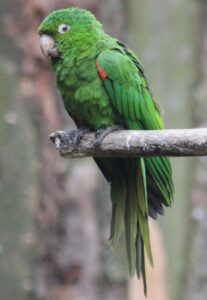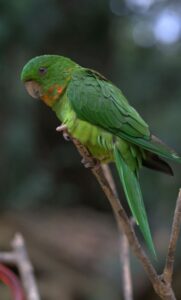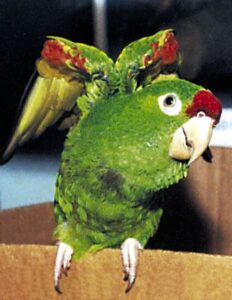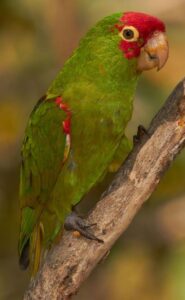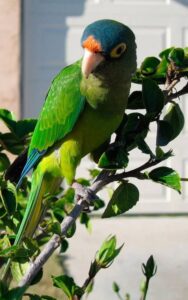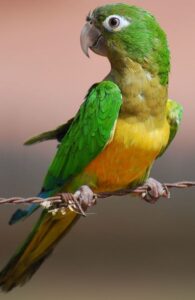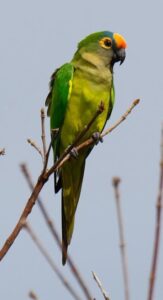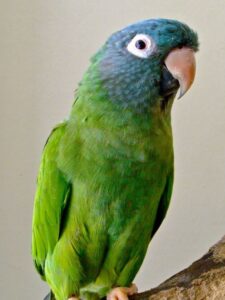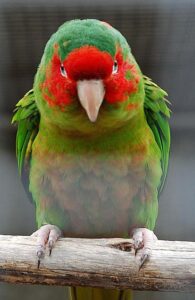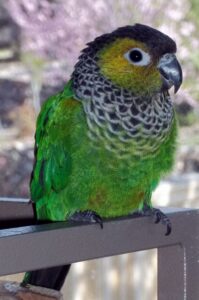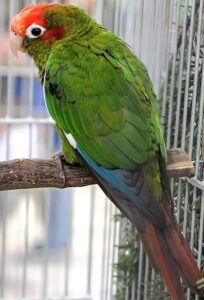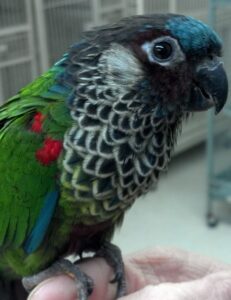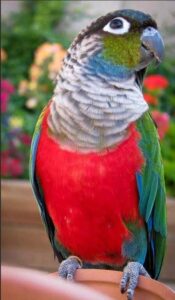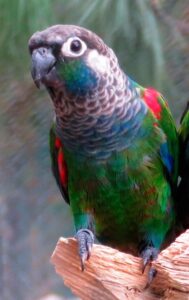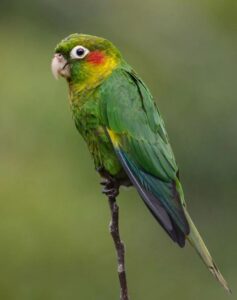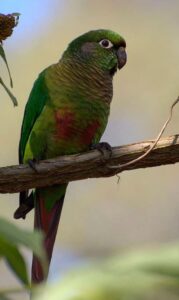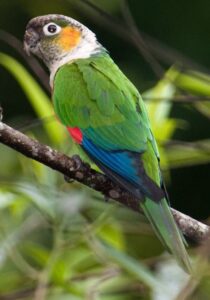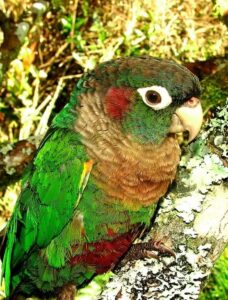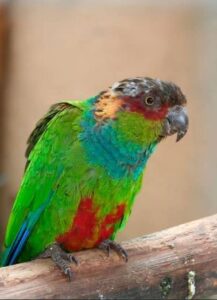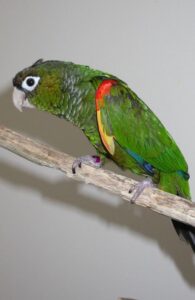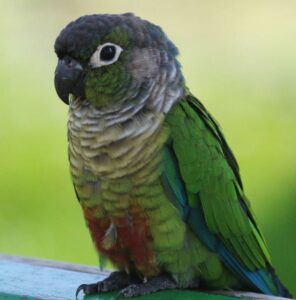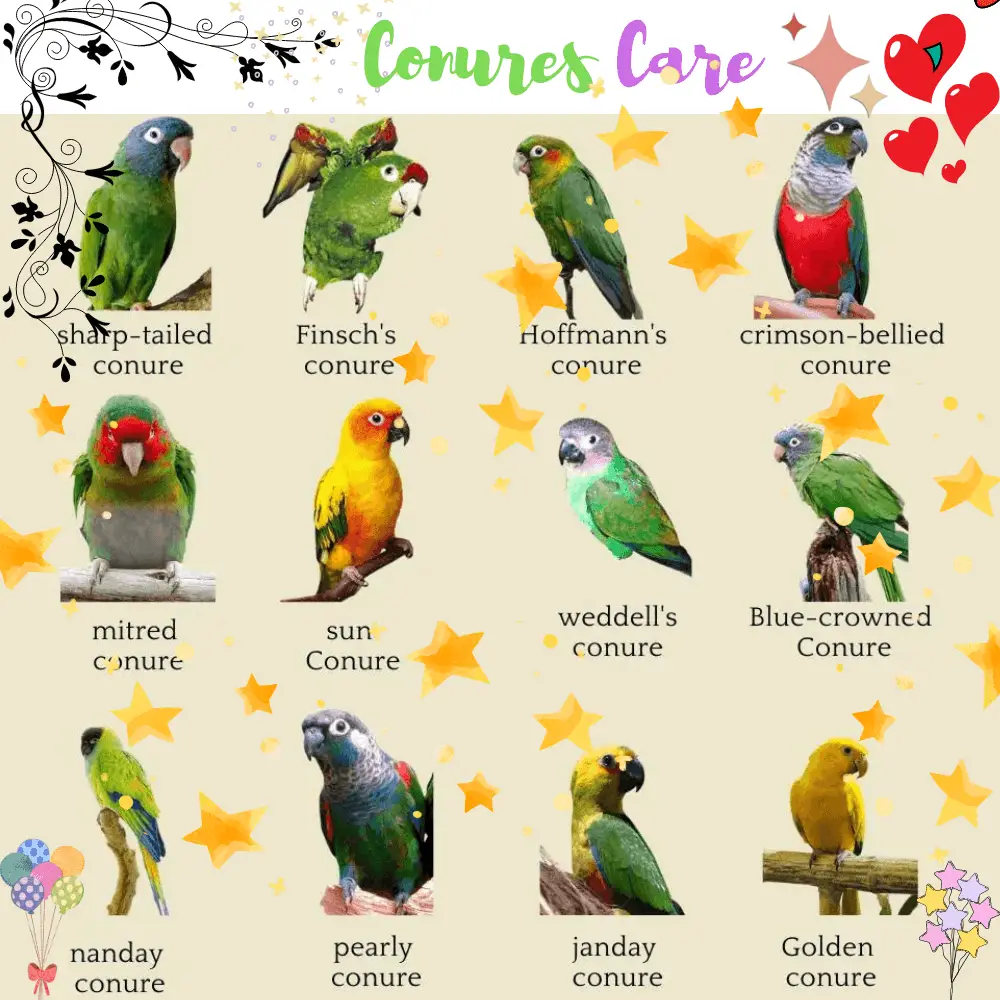
Conures care 101: Conures are birds of the order Psittaciformes (which includes parakeets and parrots) found in South America. Conures of the genus Aratingaor Pyrrhura often have strong personalities and are especially sociable, making them birds adapted to domestication.
If you are determined to take care of a parakeet and do what it takes to adapt to the environment of your home, you will have to learn many things to be able to properly care for it, perhaps by starting by reading this article.
Conure Care Sheet
All you need to know about how to care for a conure parrot
Choose your parakeet
Before retrieving such a bird at home, you must be sure that you will be able to take care of it and that you will be able to provide it with a suitable environment. You should know that a parakeet usually lives until the age of 25 to 30 years, that it necessarily takes 2 at least, and that it is an animal that can be very noisy and very agitated.
You will often have to clean the water, seeds, and feathers he has spread inside and around his cage. Your personal environment is more or less appropriate for a conure parrot depending on whether you own it, rent it or change it often. Domesticable parakeet species are plentiful and that’s why you need to do some research to determine which one is best for you.
Avoid pet stores in large chains where birds are often from intensive farms, and where they have often done a lot of road by truck which makes them more disturbed and less time, in addition to being more expensive. Turn to small-scale ranchers or ads posted online or in local newspapers.
Make sure the conures are healthy and robust. You must also make sure that the age given by the seller really matches the actual age of the conure (closed ring and certificate of transfer). Below are presented to you various details that you need to pay attention to when you have to choose a conure parrot.
- Is the conure parrot curious and active?
- Does she have bright eyes?
- Is its beak clean?
- Are its paws and claws clean?
- Are the feathers on its wings clean and smooth?
- Does she stand up straight with her chest swollen and seem to be breathing well?
- Does she seem to have a good appetite?
Prepare the cage before taking the conures home
First, you need to choose a cage that is the right size. It must be relatively large, i.e. it must have at least the following dimensions: 80 x 60 x 90 cm.
You can of course choose a larger cage to provide more space for your bird. Conures must be able to flap their wings from one end to the other and not just move from perch to perch.
There must be many perches of different diameters and preferably in natural branches so as not to damage the legs (smooth and identical perches put pressure on the same area of the legs and injure). Perches and games will be put diagonally in the corners to leave a flight space in the center.
You should also make sure that the tray is easy to insert and take out of the bottom of the cage because you will need to clean it at least once a day if you put newspaper, less often if you choose vegetable litter (corn cob, untreated cat litter …).
- Before buying a cage, check that the layer of material that protects the metal does not crumble and that it is in excellent condition. If there is a hole or cracks in this coating, the conure could attack it with its beak and very quickly deteriorate it entirely. In addition, your birds could become intoxicated by ingesting pieces of this material.
- If the cage is made of galvanized metal, wash it and rub it with a wire brush and white vinegar to remove any pieces of galvanized metal that may come off, then rinse it thoroughly with water and let it dry. Your conure could get sick from ingesting these pieces of galvanized metal (Sick parrot symptoms)
- Do not buy a bamboo cage, as it will not withstand pecks.
- Check that the kennel door opens easily and that it is safe enough to keep your birds from escaping. Be aware that conure parrots are able to observe and understand the mechanism of opening a cage door and that is why you should consider using a padlock to ensure that this will not happen.
Add toys in the cage that can arouse the interest of your conures
They are curious and intelligent birds that have a real need for entertainment. Provide your pet with sturdy toys that won’t deteriorate under the blows of pecks and claws. Conures tend to be attracted to glittering objects like metal parts or mirrors and it might be a good idea to provide them for your birds, as long as you check beforehand that their presence doesn’t disturb them more than anything else. Indeed, shiny objects can sometimes be the cause of behavioral disorders in some conures.
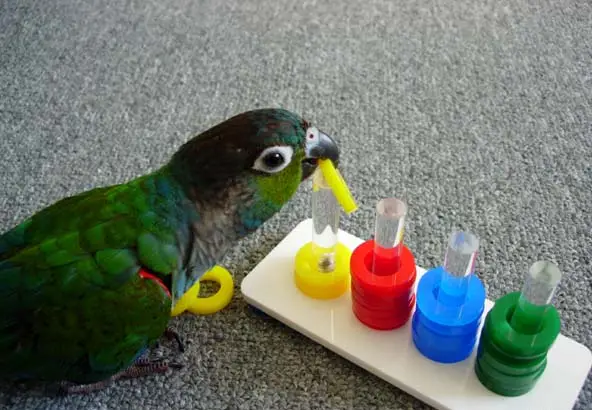
- You should start by adding to the cage the essentials that allow your bird to eat and drink, such as a metal bowl (stainless steel), a container of water, and a bathtub (bowls for terrariums or shallow Tupperware do the trick).
- Do not always put the same parrot toys in the cage to prevent your conures from getting tired of them.
- Provide your conures with safe items such as untreated wooden toys or rope toys (which should not fray, as your conure could end up unrolling it or tearing it completely with its claws). Avoid toys that are fragile or made of a material that can be attacked by the beak or claws.
- Place the back of the cage against a wall. This allows the conures to feel safer because then they only need to put their backs to the wall so that their field of vision horizontally covers the entire space of the room in which the cage is installed. Preferably, place the cage in a place where there is some activity so that your conures do not feel too alone. However, do not place it in the kitchen or bathroom of your home, as these are rooms in which toxic chemicals can be spread to your birds, such as Teflon molecules or droplets of lacquer or air freshener.
Set up your conures at home
You should know that it will take some time for them to get used to the new environment, as is the case with any pet. During this time, spend a lot of time with your birds and talk to them often to reassure them and make your parrot talk.
Can green cheek conures talk? yes, green cheeks can learn to mimic human speech. and which parrot can talk? and why and how parrots talk also why do parrots eyes dilate when they talk? and what is the cheapest parrot that talks?
Make sure they hear their name as often as possible and make sure their cage is always kept clean. You’ll know they’ve finally found their feet when they spend roughly the same amount of time playing, feeding, and sleeping.
Be prepared to hear a lot of noise
Conures can be a very noisy parrot and probably much more than you might imagine. Those of the genus Aratinga is particularly mischievous and noisy sun conures much more than those of the genus Pyrrhura Green cheeked conure
Whichever species you choose, you can expect to hear extremely varied screams and whistles, especially at dawn and dusk.
The calls are normal and important in the social life of the bird, do not anger them to reduce them, they would not understand. On the other hand, a parakeet that screams all day is in distress and we must worry about this cry for help. Conures alone are often noisier, as they make contact calls in search of a congener.
Feed your birds properly
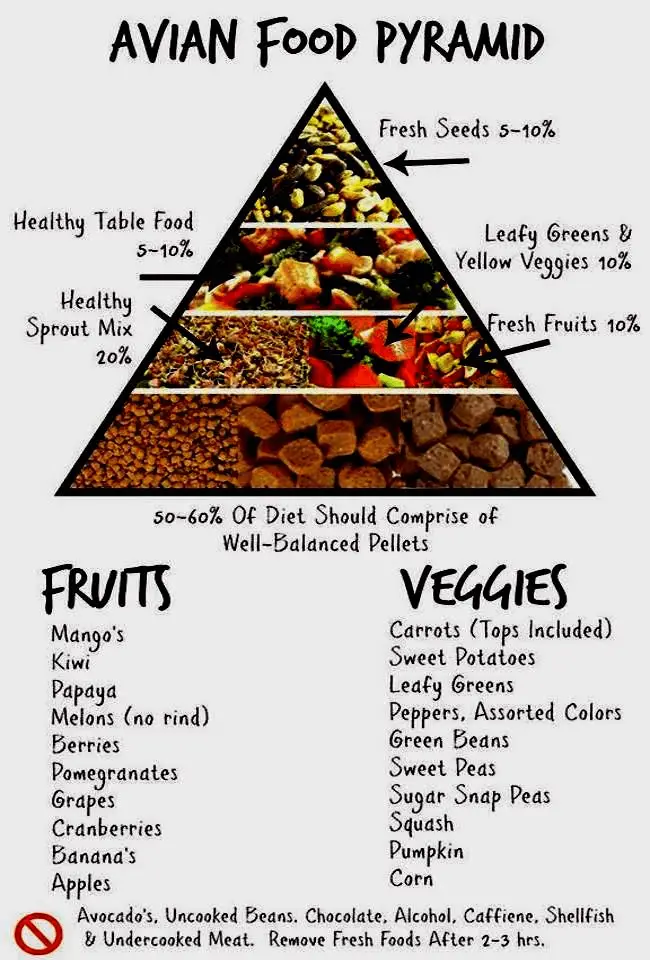
First, ensure that clean water is always available. You can alternate fresh seed extract for a parrot (50% large parakeet mixture and 50% parrot mixture) and sprouted seeds. You can also give him the Parrot food in granules (extruded). Add to its menus possibly unsweetened whole cereals, cooked rice grains, corn, peas, or canned beans and soybean sprouts.
Provide vegetables and fruits of a green or dark orange color every day to ensure an adequate amount of vitamin A. For example, you can give him pieces of carrot, dried red pepper, broccoli, and dandelion leaves. Avoid canned vegetables, as they are often too high in sodium.
As for protein, you can give an egg during molting, but it’s all scrambled eggs. No dairy products and even less raw milk, they are not mammals and they do not digest it as the body of conures does not make lactase (the enzyme that breaks down lactose which is one of the main sugars contained in milk). It will take fresh flowers and branches (bamboo, dandelion, sençon, daisies, mallow, rose, eucalyptus, hackberry, willow …).
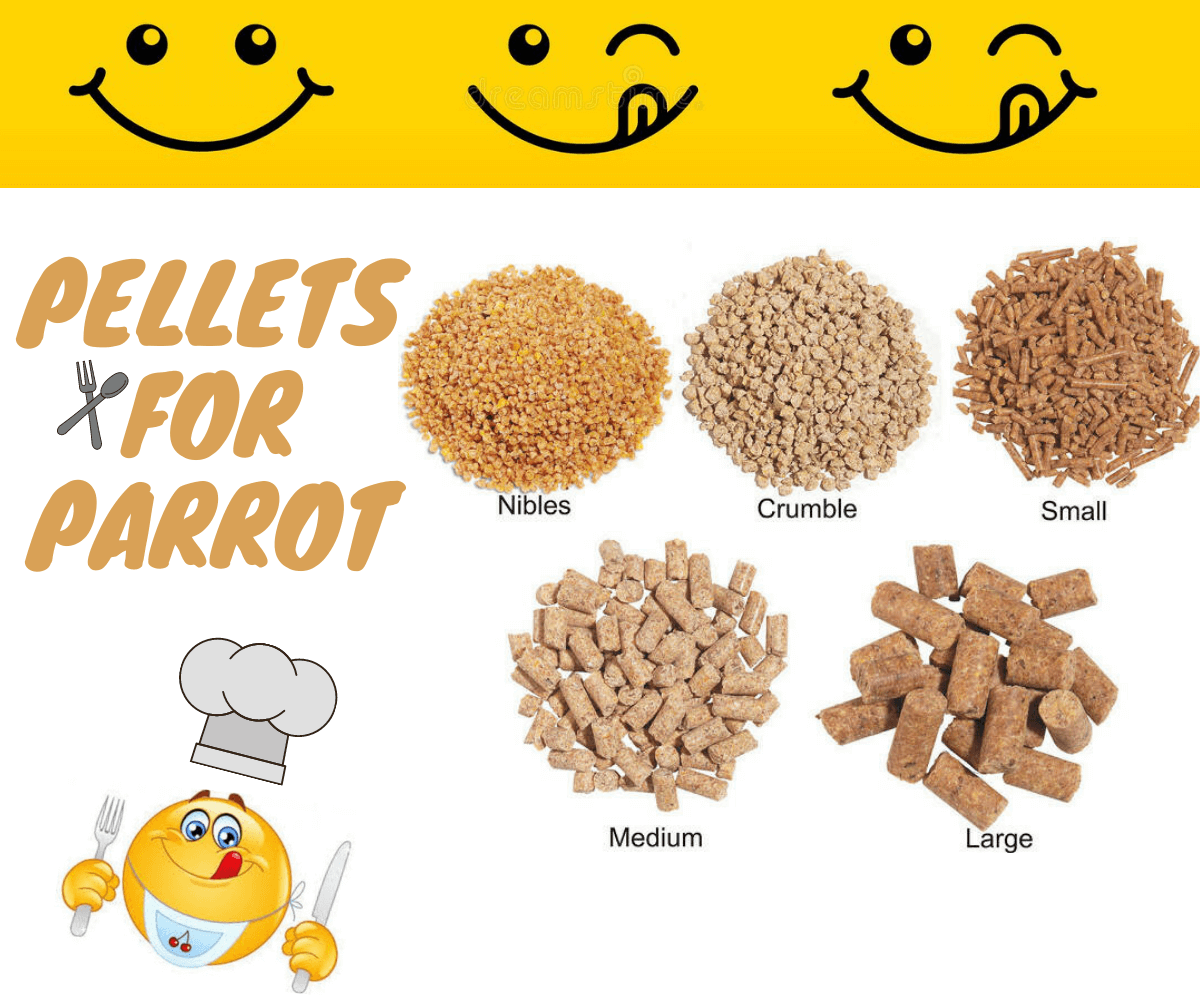
You should also be careful with the following foods:
- seeds enriched with vitamins, because their good quality is not always guaranteed;
- seeds, in general, because your conure can fatten if you give him too much;
- Avocado, eggplant, chocolate, alcohol, salt, sugar… and any other parrot-toxic food.
Take the conures out of their cage every day and for as long as possible
Keep them with you whenever you engage in a relatively long activity in your home, such as working in front of the computer or watching television. You can also buy a bird harness so you can take it outside your home from time to time, but learning the harness is long and requires patience, be careful not to lose your birds and teach them the basics of recall to recover them in case of leakage.
- Have fun introducing your conures to new toys. Parakeets are curious by nature and you will surely be surprised when you observe your parrot’s behavior as they discover an object.
- Buy a wooden playground or make one. You can install it outside the cage.
- Play with your birds as often as possible, for example, by asking them to point to the cup under which you hid an object. You could experience as much fun as your conures practicing this game! Tie a knot with a rope and observe how long it takes them to untie it.
Do not trim its wings
The conure needs free flight, The size of the wings is now prohibited in France, and birds will lose their muscles by not flying, will lose confidence, and may have cirrhosis or breathing difficulties, Psychologically, this practice in the long run can have a significant impact on the bird deprived of the flight for which it is made.
You will also have to learn how to detect the signs of a health problem in your bird on your own. To begin with, you should know that a healthy conure defecates between 25 and 50 times a day and that is why it is very important that you clean its cage at least once a day.
The droppings have a small tube shape with a green central part and white tips (all different types of green parrots with pictures). If the quantity, color, or texture of the feces are not the same as usual, it is because your conure has a health concern (be careful to think about what to eat the bird, after a meal of carrots if the droppings are reddish, it is normal).
If, in addition, his behavior changes (drooping wings, apathy, lack of appetite, longer than usual sleep periods, limping, weight loss, runny eyes, noisy breathing, etc.), take the parakeet to the vet. Parakeet diseases are often difficult to detect, and if you don’t pay enough attention to your bird, you may not realize the seriousness of an ailment that is affecting it while it is dying.
- You need to be aware of the many domestic hazards your bird may be exposed to. Remember that conures are very curious and your bird will always tend to inspect its surroundings, especially if something new is there. Thus, a toilet bowl, an aquarium, medicines, a rope, a large garbage can, an oven, a dryer, and a large cushion are both sources of interest and potential dangers. You should also know that many vapors or chemical substances frequently emitted in a home can poison your conure and you must be especially careful with bleach, polishes, paints, air fresheners, insecticides, hairspray, Teflon fumes, formaldehyde, cigarettes, and cigarette smoke, lighter gasoline, paint thinners, acetone, household cleaning products, etc. For the health of your conures and yours, preferably use ecological products.
- Protect your conures from your other pets. The bacteria contained in the saliva of a cat or dog can kill your birds which could also be seriously injured by bite and end up swallowed by your “kitty” or “cat”. Remember that cats and dogs are predators and you will always need to make sure your birds do not become their prey.
Be curious about your birds as they are about you and their environment
Have fun with them and have fun with their playfulness. - Teaching a conure parrot to fly outside
Advice
- The parrot bath is a daily passage, if your conures do not have a caged bathtub (recommended) then offer them the sink of the clean kitchen with a trickle of warm water (no hot water). Plumage maintenance keeps your birds busy for a good part of the day and prevents moth attacks and sparkling plumage will be a sign of good health (balanced diet).
- Before buying a conure parrot, be sure that you will have enough time to take care of it.
- Get a good book on bird health to learn about the ailments that can affect them and how to protect them.
- Be wary when it comes to general pet stores. These are mass sales outlets where animals are often treated only as inventory pieces. If you go to such a store, you may find it difficult to make a rational choice when you are faced with animals that are in a sad state. Buying in these places only encourages intensive and unethical trade (not to mention the spread of disease, etc.). This advice applies to any animal from intensive farming.
- Learn how to decipher your birds’ body language. This way, you’ll know when they need your attention and when they want to be left alone. Interact with the 2 at the same time, if one is reassured he puts the other in confidence, and creating a link is more effective when they are several.
- Expect your conures to redo their plumage once or twice a year. This renewal is spread over several weeks. You will find parrot feathers on the bottom of the cage and your conures will tend to scratch because of the itching created by the fall of the feathers. If the molt drags on, give vitamins or an egg.
Warnings
- A child should only be able to take your conure in their hands if you are present to supervise the situation. Even the most docile parakeet can bite if it gets scared and conures have a sharp beak, served by powerful muscles, which can do great damage.
- You must file your conure parrot Beak
- Don’t add too many toys to your conure cage so they don’t get in the way of your conure.
- There’s a risk that your conure will become possessive and jealous if you don’t let her spend time with other members of your family.
- Parakeets, like humans, can suffer from chronic stress that has a detrimental effect on long-term health. Your bird is stressed if you notice the following signs: tremors, diarrhea, a rapid breathing rate, a tendency to shake its feathers very often, especially those of its wings, sleep problems, and loss of appetite. Stress practically does not exist in nature while birds must constantly watch for Parrot predators: in captivity, it is often related to lack of exercise, confinement, isolation, lack of light, and staggered schedules with sunset and sunrise. Conures are particularly sociable and can live as a couple, but also in a group of several individuals who will reassure each other.
Conure Care Guide Everything You Need To Know
Conure Care Guide Everything You Need To Know
SOURCE: BirdNerdSophie

